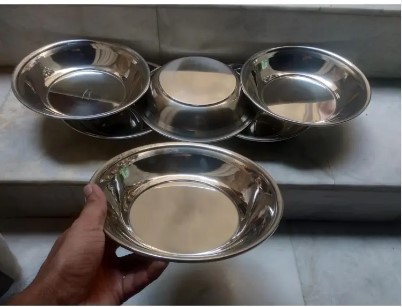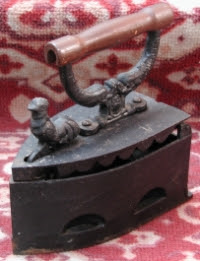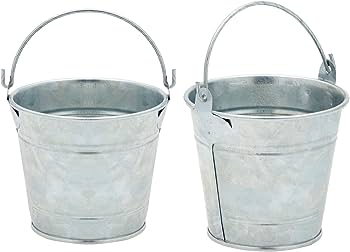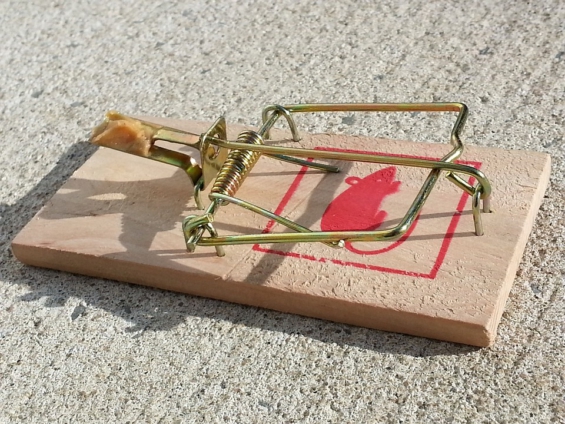In the early 2000s, Ghanaian households featured a unique set of essential items that catered to the daily needs and challenges of life.
These items, many of which have now been replaced or modernized, played significant roles in the domestic sphere.
Here’s a look at some of the staple household items every Ghanaian home used to have during this era:
1. Metal plates
Metal plates were a common sight in many homes due to their durability and ease of cleaning.
Unlike ceramic or glass, metal plates could withstand falls and rough handling without breaking, making them particularly suited for households with children.

They were also favored for outdoor activities and gatherings, as they were easy to transport and less fragile than other options.
2. Box iron
The box iron, a traditional type of iron, was another essential item in early 2000s Ghanaian homes. This iron was fueled by charcoal, which was placed inside a compartment in the iron.
The heat from the charcoal would then be used to press clothes. This method was especially useful during power outages—a common occurrence in some areas at the time.

The box iron was not only effective but also economical, as it utilized the readily available charcoal.
3. Metal buckets
Metal buckets were indispensable in many homes for various purposes, from fetching water to washing clothes and general cleaning tasks.
Their robustness made them more practical than plastic versions, which could crack or degrade under harsh conditions.
Metal buckets often lasted for years, becoming a staple due to their reliability and the multifunctional roles they played in daily household activities.

4. Mouse trap: Kwakwe last stop
With many areas facing challenges with rodents, a sturdy mouse trap was a must-have in Ghanaian homes.
These traps helped maintain hygiene and comfort by controlling the population of mice, which could be a nuisance and a health hazard.

The typical mouse trap in these homes was simple yet effective, often made of metal, which provided durability and reuse capability.
5. Electric heater
Despite Ghana’s generally warm climate, the early 2000s saw many homes equipped with an electric heater to combat the chill during the harmattan season, when dry and dusty winds can significantly lower temperatures.

Electric heaters were crucial during this period, providing warmth and comfort through colder nights and mornings.
These items represent a snapshot of life in early 2000s Ghana, reflecting the ingenuity and adaptability of households during that period.
While technology and economic development have introduced more modern conveniences into Ghanaian homes, these traditional items remain a fond memory for many, highlighting a time of resourcefulness and simplicity.
Pulse





